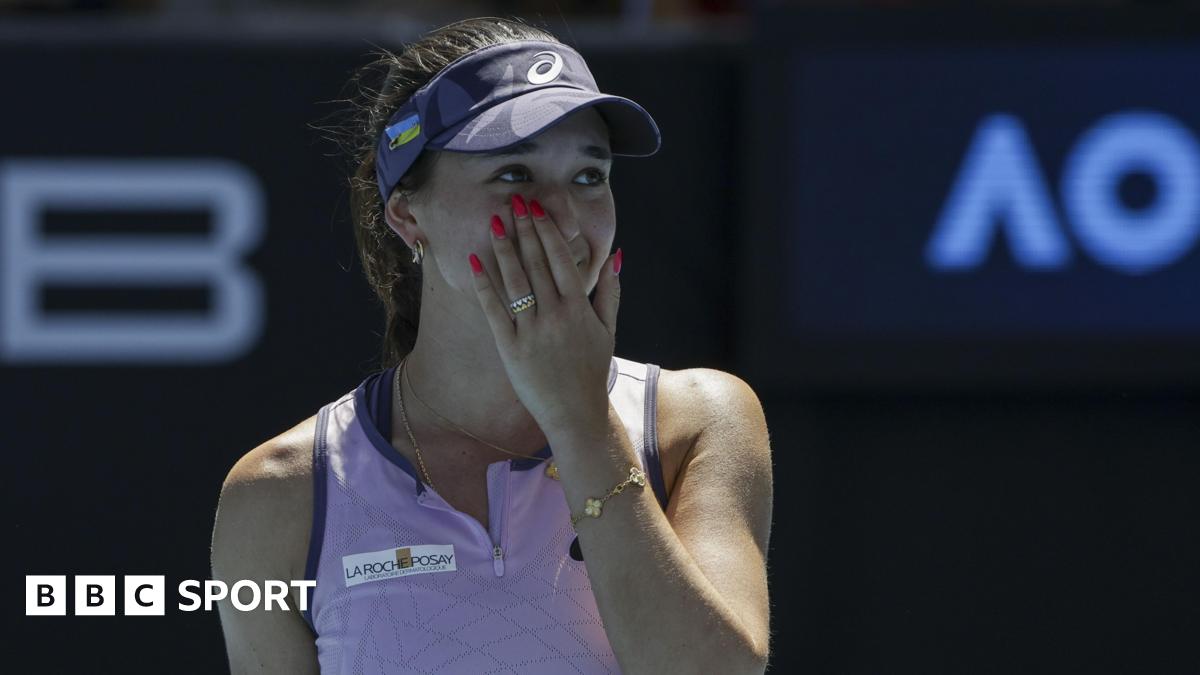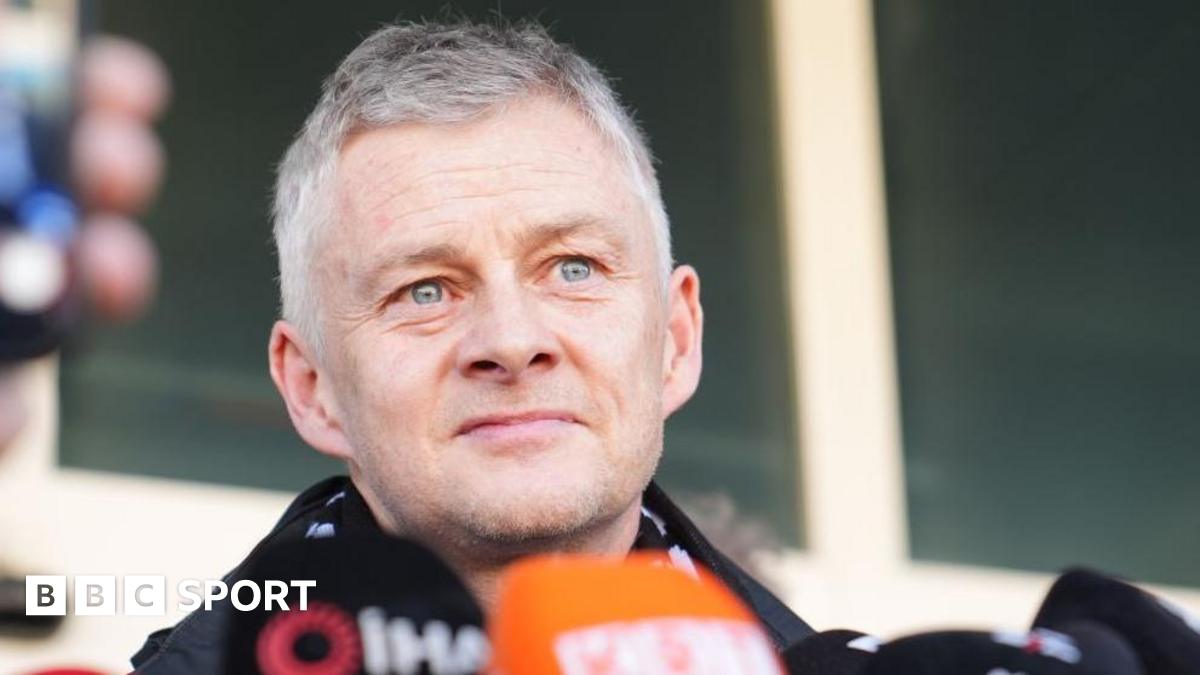ARTICLE AD BOX
Republic of Ireland 1-2 Wales: Highlights as visitors make history in Dublin
Michael Pearlman
BBC Sport Wales
Through adversity, came triumph.
After missing out on qualification in heartbreaking fashion for three successive major tournaments, many Wales supporters and players could have be forgiven for feeling at the start of 2024 that the prospects of becoming history-makers was beginning to fade.
After so much progress and success in the past decade, arguably signs had started to appear that signalled major tournament qualification seeming a little out of reach.
Wales' popular manager, Gemma Grainger, opted to leave to take a role with Norway, leaving Wales’ players upset and frustrated that their leader seemingly did not have full faith that they could turn dreams into reality.
Star player and catalyst for qualification Jess Fishlock, turned 37, admitting that she did not know how much longer she could continue trying to drag Wales to the Promised Land.
Captain Sophie Ingle stood down from the role after nine-years in charge, before suffering an ACL injury in July that ruled her out of the biggest games in Wales' history.
Relegation from Nations League A meant that Wales had no automatic route to Euro 2025 in Switzerland, with the best they could hope for being success in the play-offs and a potential tie against a top-10 ranked nation.
Yet, despite seemingly being in a low moment, Wales have achieved their dreams and finished their story.
‘This was a marathon and I came for the sprint finish’
Wales has always been 'home and haven' for - women's boss Wilkinson
The appointment of Rhian Wilkinson to succeed Grainger was a ginormous gamble from the FAW.
By her own admission Wilkinson joined Wales after a difficult time in her life, having left her role with Portland after losing the confidence of the dressing room. By her own admission she felt "a little lost."
Wales' players were already upset about the departure of Grainger and there seemed little chance that Wilkinson could hit the ground running with just three camps before the Euro play-offs.
Wales never really hit top gear in Nations League B, but they ultimately did enough to win their group and earn a seeded spot in the play-offs, where they drew Slovakia before a final against either Georgia or Republic of Ireland.
Suddenly a path had opened to reach Switzerland, but at 2-0 down in Poprad and without the injured Ingle and Fishlock, the dream was turning into a nightmare.
Wales goalkeeper Olivia Clark revealed that strong words and "honest conversations," were had between Wilkinson and the players and Wales fought back to win the tie 3-2 after extra time in the second leg.
They were still underdogs for the final against Republic of Ireland, but this was the point where Wilkinson showed her pedigree as a manager and began to earn the full trust of her players.
Wilkinson got the better of Ireland manager Eileen Gleeson in the final, seemingly getting under her skin and in her head as she seemingly managed to disrupt Ireland.
By continually implying that Ireland were a long ball and overly physical side, it seemed the message upset the Irish players who at times lacked composure for a team who had been to the World Cup.
Captain Katie McCabe was a prime example, flying into tackles and arguably lucky not to be sent off in the all-important Dublin game.
Gleeson said after the game that she had been unhappy with Wilkinson’s behaviour on the touchline, but it was hard not to view that as a case of sour grapes.
The seeming gamble to appoint Wilkinson paid off handsomely. She might have, in her words, joined “a marathon for a sprint finish,” but she has helped Wales to finally get over the line.
I could not be more proud of this group - Fishlock after Wales qualify for Euro 2025
Overcoming injuries and finding new solutions
For Wales to qualify for a major finals having played the play-offs without cap centurion Ingle and large parts without Fishlock, would have seemed unfathomable even a few months ago.
After relying for so long on a clutch of top talents with little depth to fill their squad, Wilkinson and Wales have found solutions to drag them over the line.
Ingle injured? Step forward Alice Griffiths, the unassuming Southampton midfielder who turned the game against Slovakia and performed admirably in Dublin.
Striker Elise Hughes out long-term? Enter Ffion Morgan to score a vital goal in Slovakia to get Wales back into contention in the play-offs, before her replacement, Hannah Cain, came back from two ACL surgeries to score in the final.
More and more of the Wales squad have sought to switch clubs if they have not been playing regularly, with the likes of goalkeeper Olivia Clark, defender Gemma Evans and midfielder Carrie Jones all making moves.
Jones moved to Sweden citing the need to play in a side more able to replicate Wales’ style and it was the 21-year old who scored what turned out to be the biggest goal in Wales women’s history, the winner in Dublin.
As for Ingle, she is clear that next summer’s tournament "gives her something to keep fighting for," as she continues on the arduous road to recovery.
Image source, FAW
Image caption,Wales drew 1-1 at home in the first leg before beating Ireland 2-1 in Dublin for a 3-2 aggregate
Changing their own fortunes after so many hard luck stories
So many oh-so-near moments have befallen this group of players in the past decade as three successive campaigns ended in heartache.
Losing a final game of the group shoot-out with England for a World Cup berth.
Missing the Euros play-offs – and a spot at the tournament – due to away goals in a head-to-head scenario with Northern Ireland.
Last-gasp play-off heartache, with Wales denied a spot at the World Cup – or at least a chance at penalties – as they lost in the final minute of extra time to Switzerland.
It would have been easy for Wales to feel things were going against them once again in this campaign, with Ingle and Fishlock’s injuries, but Wales finally did get a little bit of luck in their play-off final.
The Republic of Ireland team will no doubt still be lamenting how they were beaten in Dublin, with Wales’ goal leading a charmed life in the final moments as a combination of poor finishing, excellent defending and a little bit of luck carried Wales to unchartered territory.
The dream has become reality.

 1 month ago
8
1 month ago
8








 English (US) ·
English (US) ·